While President Trump Bullies the World
Africa is Finding Its Footing

The world has long witnessed how pressure creates change, much like the intense force that transforms a raw diamond into a priceless gem. In the same way, Africa—long subjected to external control, economic exploitation, and political interference—is undergoing its own transformation. As President Donald Trump aggressively wields America’s economic and political power, often bullying allies and adversaries alike, Africa faces its own reckoning. But rather than crumble under pressure, the continent is beginning to find its footing, shifting away from foreign aid dependency and embracing a future built on self-reliance, resource sovereignty, and strategic partnerships.
Trump’s administration is marked by an “America First” policy that disregards traditional alliances and focuses on transactional relationships. This approach forces many nations, including those in Africa, to reevaluate their economic and diplomatic strategies. While the U.S. reduces aid programs and makes it clear that African nations must negotiate from a position of strength or be left behind, this abrupt shift may be a blessing in disguise. Decades of reliance on Western aid have stifled Africa’s growth, creating cycles of dependency rather than fostering self-sufficiency. Now, facing a global landscape where aid is no longer guaranteed, African nations are beginning to forge their own paths.
The key to Africa’s newfound resilience lies in its immense wealth—both in natural resources and human capital. The continent holds some of the world’s most valuable mineral reserves, including gold, cobalt, lithium, and rare earth elements, all critical to the future of global technology and energy. Rather than allowing foreign corporations to extract these resources at bargain prices, African leaders are beginning to assert control. Countries like Ghana and Zimbabwe are exploring gold-backed economic strategies, while others are pushing for in-country mineral processing rather than raw exports. This shift ensures that Africa reaps the true benefits of its wealth, generating jobs and strengthening local economies.
Furthermore, Africa’s embrace of regional economic cooperation is a major step toward self-sufficiency. The African Continental Free Trade Area (AfCFTA), the largest free trade agreement in the world by member countries, is a bold move toward reducing dependency on external markets. By promoting intra-African trade, nations can build regional supply chains, keep wealth circulating within the continent, and negotiate better terms with foreign investors. Instead of being at the mercy of Western economies, African nations are learning to leverage their collective power.
The pressure to evolve has also ignited a surge in technological innovation and entrepreneurship. Nations like Rwanda, Nigeria, and Kenya are leading the charge in fintech, digital services, and green energy solutions. Africa’s youth—its greatest asset—are turning to technology to solve local challenges, from mobile banking to agricultural AI solutions. With better access to digital infrastructure, the next generation of African entrepreneurs will play a crucial role in shaping a self-sustaining future.
While Trump’s tenure is defined by aggressive foreign policies and economic nationalism, Africa uses that same pressure to harden itself against historical patterns of exploitation. Just as diamonds emerge from extreme heat and pressure, Africa is refining itself into a force that can no longer be ignored. The continent’s transformation is not about defiance but about self-determination. Africa is proving that it doesn’t need handouts—it needs fair trade, control over its resources, and the ability to shape its own destiny. And now, as global power dynamics shift, Africa is ready to shine.


